CANR honors 2022 cohort of Global Scholars in Research
CANR announces a new cohort of five new global scholars representing research.

The Michigan State University (MSU) College of Agriculture and Natural Resources (CANR) has announced a new cohort of 17 CANR Global Scholars, five representing research. The scholars will be honored at the CANR Faculty & Staff Reception April 21.
Selected by the CANR International Programs Office, the Global Scholars Program supports established and early-mid career faculty members with seed funding and travel support for two years. Through this endeavor, CANR leadership annually selects three or more global scholars to strengthen and expand their global linkages, networks and collaborative programs across three core missions of the college in diverse areas of research, education and outreach.
The Global Scholars Program aims to enhance engagement of early and mid-career faculty members in international programs, according to Karim Maredia, director of CANR International Programs.
The Global Scholars representing Research are:
- Abigail Bennett, Ph.D., assistant professor of Global Inland Fisheries Ecology and Governance.
- Eric Mark Benbow, Ph.D., assistant professor in the Department of Entomology.
- Wei Liao, Ph.D, professor and director of the Anaerobic Digestion Research and Education Center in the Department of Biosystems & Agricultural Engineering.
- Saweda Liverpool-Tasie, Ph.D., associate professor in the Department of Agricultural, Food, and Resource Economics.
- Lisa Tiemann, Ph.D., assistant professor of Soil Biology in the Department of Plant, Soil and Microbial Sciences.
The Global Scholars Program began in summer 2019 after Maredia was named director of CANR international programs. He was tasked with creating a faculty development initiative that grows the college’s global footprint and forms lasting international partnerships.
Global Scholars – Research
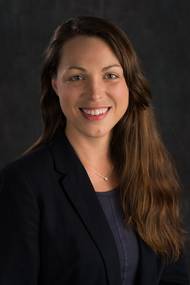
Abigail Bennett, Ph.D., is an assistant professor of global inland fisheries ecology and governance in the Department of Fisheries and Wildlife. She studies the role of fisheries in livelihoods and food security around the world. Her research examines how processes, such as governance and trade, shape the connections between fisheries and human well-being. Empirically, she employs innovative approaches to confront the challenges of inadequate data, given that substantial global fish catch is unreported and post-harvest activities are often undocumented. To bring fisheries to the forefront in policy dialogues on sustainable development goals, such as reducing poverty and addressing global hunger, she works closely with organizations such as the United Nations Food and Agriculture Organization and other international organizations in the design, implementation and dissemination of research.
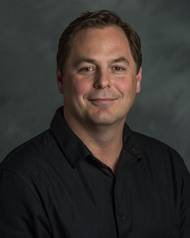
Eric Mark Benbow, Ph.D., is an assistant professor in the Department of Entomology. Benbow is a community ecologist, studying how complex communities (e.g., aquatic or carrion insects or microbes) contribute to ecological systems and how understanding these communities can be used in various applications in medicine, disease and environmental management. The research programs in his lab center on the applied ecology of insect-microbial interactions within three systems: carrion decomposition (and forensics), aquatic ecological networks and disease systems. Benbow is actively engaged in collaborative research programs with scientists in Africa, Asia and Latin America.
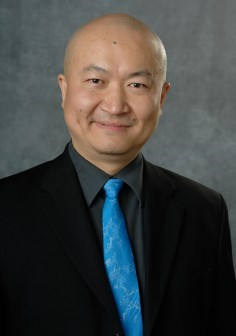
A registered professional engineer (PE), Wei Liao, Ph.D., is professor and director of the Anaerobic Digestion Research and Education Center (ADREC) in the Department of Biosystems & Agricultural Engineering (BAE). Liao is leading an active research program on developing integrated systems to utilize organic residues for energy and chemical production. He has been extensively involved in international research and education activities on renewable energy and environmental sustainability. His group is carrying out research projects in Latin America, Europe and Asia. He is currently organizing an American Society of Agricultural and Biological Engineers (ASABE) global engagement conference to be held in Costa Rica this year.
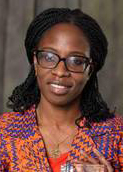
Saweda Liverpool-Tasie, Ph.D., is an associate professor in the Department of Agricultural, Food, and Resource Economics. Her work focuses on reducing poverty and increasing access to nutritious food through improving smallholder productivity and welfare within the changing markets of sub-Saharan Africa and alongside poorly functioning markets in the region. Liverpool-Tasie was recently appointed to the Board for International Food and Agricultural Development (BIFAD) by President Biden. She has won numerous awards for her work, including the John K. Hudzik Emerging Leader award, the MSU Teacher Scholar Award and, in collaboration, the 2017 AAEA Bruce Gardner Memorial Prize for applied policy analysis.
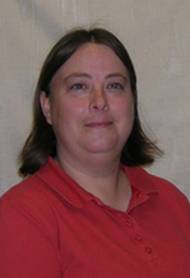
Lisa Tiemann, Ph.D., is an assistant professor of soil biology in the Department of Plant, Soil and Microbial Sciences. With a doctorate in ecology and evolutionary biology from the University of Kansas, she takes an agroecological approach to research, which is critical for developing innovative approaches to agriculture that simultaneously increase system productivity, resilience and sustainability. This is particularly important in the low-input, small-holder farms of sub-Saharan Africa. Tiemann began working in western Africa in 2013 as a National Science Foundation, Science, Engineering and Education for Sustainability Fellow. Her work in Uganda explored social and economic drivers of management that alter soil organic matter stocks with consequences for soil fertility, soil health and crop productivity. Tiemann continues to work in western Africa, Malawi and Kenya, across multiple disciplines to promote understanding of the importance of managing soil microbes and soil organic matter for healthy, fertile soils.



 Print
Print Email
Email




